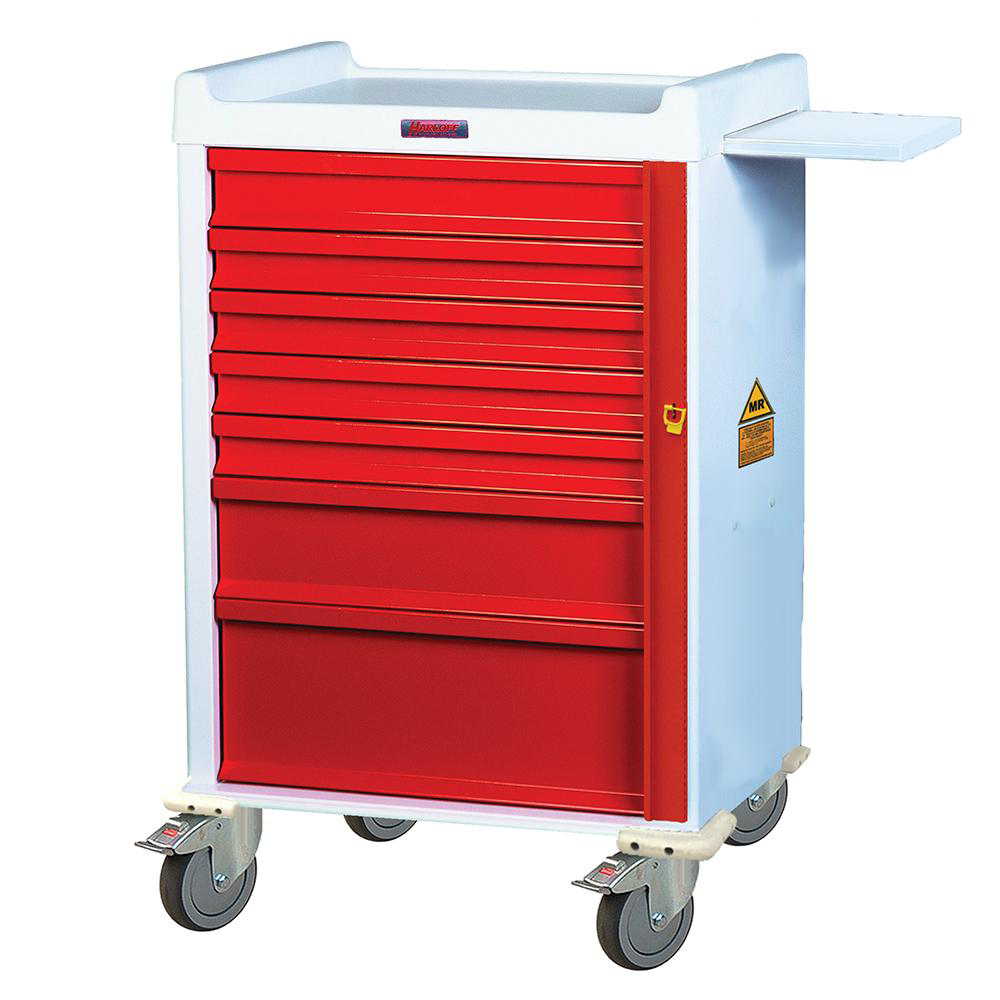-

Standard Line Med Bin Cart - SL36BIN5
$4,494.00

How to Ensure Pharmacy and Vaccine Storage Compliance
-
Jun 05,2023
When it comes to pharmacy and vaccine storage, are you confident that your facility is compliant with all necessary regulations and guidelines? If not, it's important to take action to ensure the safety and efficacy of your medications.
Pharmaceutical drugs and vaccines are highly regulated products, and for good reason. Improper storage can lead to reduced potency, contamination, and even harm to patients. As such, there are strict rules in place to govern the storage and handling of these products.
Whether you're a pharmacist, a healthcare provider, or simply someone responsible for a facility that stores medications, it's crucial to understand and implement the necessary compliance measures. In this article, we'll explore the key factors to consider in order to ensure proper pharmacy and vaccine storage, and provide tips for achieving and maintaining compliance.
Pharmacies, hospitals, clinics, and other healthcare facilities that store vaccines must comply with strict regulations to ensure the safety and efficacy of the vaccines. Healthcare providers are responsible for the proper storage and handling of vaccines to prevent them from getting spoiled, which can result in the delivery of ineffective vaccines and reduce their overall effectiveness. Failing to adhere to the regulations can result in costly fines, loss of reputation, and even legal action. Therefore, it is crucial for healthcare providers to equip themselves with the knowledge, skills, and tools necessary to ensure pharmacy and vaccine storage compliance.
1. Understand the Fundamentals of Pharmacy and Vaccine Storage Regulations
To ensure pharmacy and vaccine storage compliance, healthcare providers must understand the fundamental regulations concerning vaccine storage. These regulations are put in place to guarantee the quality, safety, and efficacy of the vaccines. Healthcare providers must adhere to the regulations to the letter to prevent any breaches that can compromise the quality of the vaccines.
2. Know the Requirements for Storing Vaccines
Vaccines have special storage requirements that providers must follow. Some vaccines require specific temperatures, while others need them to be stored in a specific way. It is, therefore, essential to be aware of each vaccine's storage requirements before deciding how to store them. Healthcare providers should read the vaccine manufacturer's instructions and guidelines on storage and handling to ensure proper storage conditions.
3. Determine the Ideal Temperature for Vaccine Storage
Most vaccines require storage temperatures of between 2°C to 8°C. Storing vaccines outside this temperature range can affect their effectiveness and pose a public health issue. Healthcare providers should make sure that the refrigerator where the vaccines are stored is well-calibrated to maintain the recommended temperature. A thermometer should also be in the unit, which should be checked daily to ensure that the vaccines are stored at the right temperature.
4. Tips for Maintaining Proper Storage and Handling of Vaccines
To maintain the safety and efficacy of vaccines, healthcare providers must ensure proper storage conditions. They can do this by following the tips below:
i. Store vaccines in their original packaging.
ii. Ensure that the refrigerator is at an ideal temperature by using a calibrated thermometer and monitoring daily.
iii. Only store vaccines in the refrigerator and not in refrigerators that store food or other materials.
iv. Limit the number of times the refrigerator is opened and ensure that it's not left open.
v. Ensure proper ventilation, security, and lighting of the storage facility.
vi. Store vaccines in airtight containers.
vii. Ensure that vaccines are stored in the correct order to prevent mix-ups.
viii. Dispose of expired vaccines and store unused vaccines appropriately.
5. Implement Best Practices for Maintaining the Safety of Your Vaccines
Apart from the above tips, healthcare providers can maintain the safety and efficacy of vaccines by implementing best practices.
i. Train personnel who handle vaccines on proper storage and handling techniques.
ii. Create a vaccine storage and handling policy and ensure that all employees understand and follow it.
iii. Use a vaccine inventory management system to track expiration dates and avoid stockouts.
iv. Develop a contingency plan in case of power outages or other emergencies that may affect the storage of vaccines.
v. Use vaccine carriers and coolants to transport vaccines.
vi. Maintain accurate records of vaccine storage and handling.
6. Learn about the Value of a Good Vaccine Storage and Inventory Management System
To ensure proper vaccine storage and compliance, healthcare providers must use a good vaccine storage and inventory management system. Such a system can help in:
i. Tracking vaccine inventory levels and expiration dates.
ii. Preventing vaccine stockouts.
iii. Reducing vaccine wastage and spoilage.
iv. Providing accurate records and documentation of vaccine storage and handling.
v. Ensuring that vaccine storage facilities are well-maintained.
7. Conclusion: Recap the Importance of Compliance and Maintaining Proper Storage and Handling of Vaccines
In conclusion, healthcare providers must ensure pharmacy and vaccine storage compliance to safeguard the safety and efficacy of vaccines. They can comply with the regulations by following the tips and best practices discussed herein and by using a good vaccine storage and inventory management system. Failure to comply can lead to costly consequences that can have far-reaching effects on public health. Therefore, it is essential for healthcare providers to prioritise compliance and proper storage and handling of vaccines.




